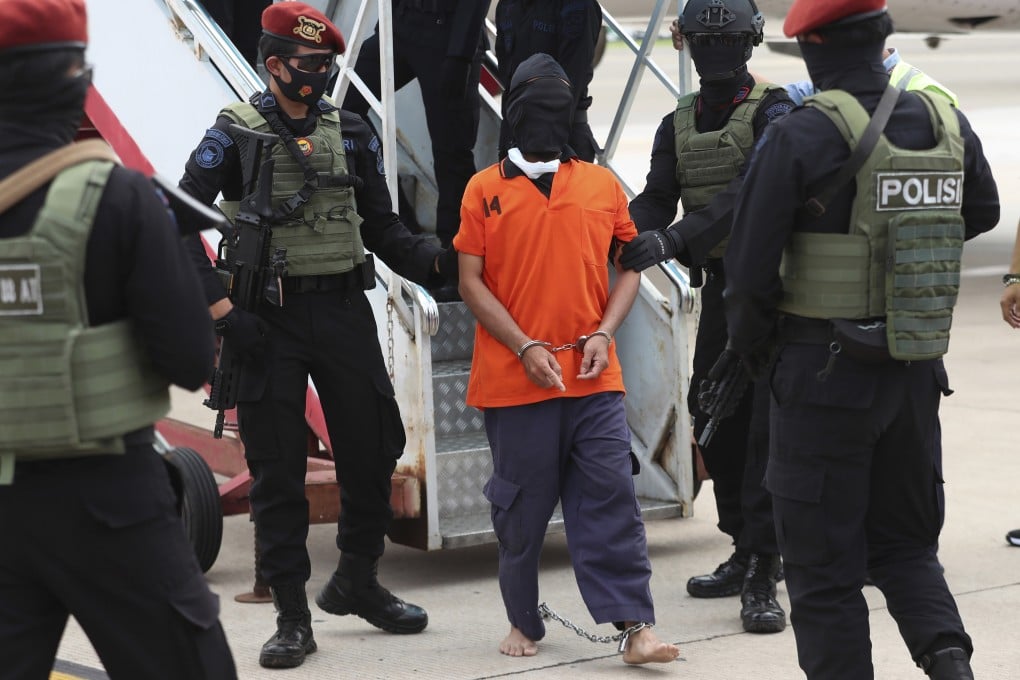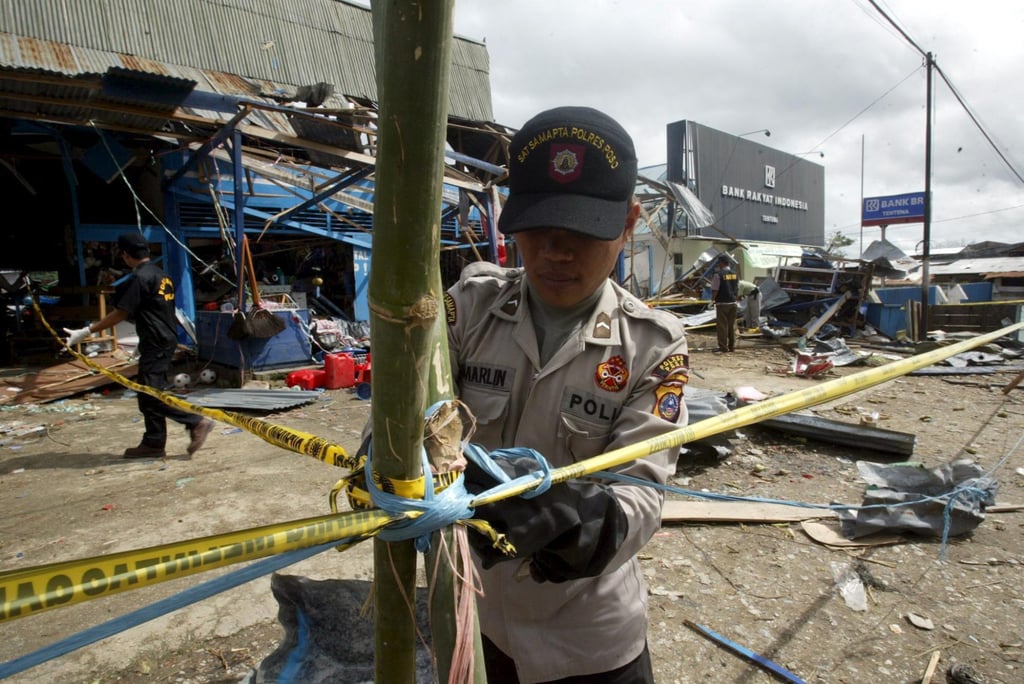Indonesian militant Upik Lawanga gets life sentence for 2005 attack that killed 22
- After evading capture for 16 years, Upik Lawanga, was found guilty of making bombs used in Tentena market attack that killed 22 people and injured 91 others
- He is a member of the Jemaah Islamiyah militant network, widely blamed for other attacks including 2002 bombings on resort island of Bali that killed 202 people

An Indonesian court sentenced an Islamic militant who eluded capture for 16 years to life in prison on Wednesday after finding him guilty of making bombs used in a 2005 market attack that killed 22 people.
Upik Lawanga, known as “professor”, is a key member of the Jemaah Islamiyah militant network, which the US has designated a terrorist group. It is widely blamed for attacks including the 2002 bombings on the Indonesian resort island of Bali that killed 202 people, mostly foreign tourists, as well as attacks in the Philippines.
The East Jakarta District Court found Upik, 43, guilty of involvement in the May 28, 2005, attack at Tentena market in Poso district which killed 22 people and injured 91 others, mostly Christians. Muslim-Christian conflicts in Poso in Central Sulawesi province killed at least 1,000 people from 1998 to 2002.
Upik was also accused of building bombs used in a 2004 passenger minibus attack that killed six people and a 2006 attack using a flashlight bomb that killed a Christian woman.

“What the defendant has done was a crime against humanity that left deep wounds, trauma and sorrow for the families of the victims,” said Presiding Judge Sutikna, who goes by a single name.
Upik said he would appeal the decision. He argued in court that he helped make the bombs but did not carry out the attacks, saying he did not know how they would be used. He said he was only obeying orders from other senior members of the group to assemble bombs to avenge Christians for the massacre of Muslims at an Islamic boarding school during sectarian conflict in May 2000.